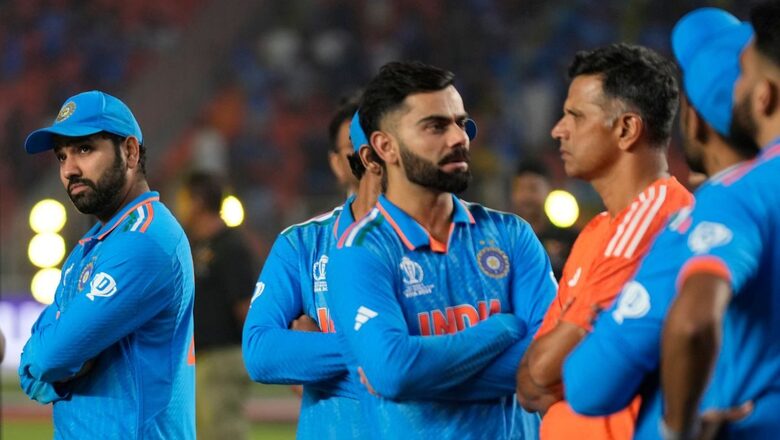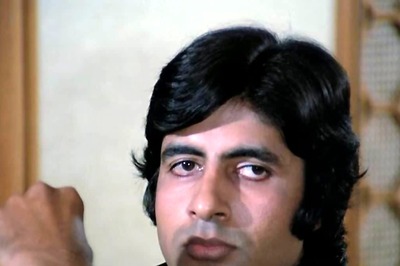
views
The relentless march of India to the finals of World Cup Cricket tournament raised hopes of our winning the Cup to dizzying heights. Sure of regaining the crown after a gap of twelve years, we never counted on the phenomenal talent and mental strength of the Australians. When we lost the match and the crown went to Australian’s head, it was a heartbreak for a billion Indians, and the usually boisterous crowd in the stadium went into a deafening silence. When asked before the match about how the huge, noisy spectator support for the Indian team, Pat Cummins, the Aussie captain had rightly predicted: “There’s nothing more satisfying than hearing a big crowd go silent.”
It is well known that Indians, by and large, are disposed to extreme reactions. Victory results in wild celebrations and defeat in deep disappointment and at times, angry outbursts and violence. One has to only recall what happened in the semifinals of the India-Sri Lanka match at Kolkata in 1996.
With India down to 120/8 and likely to lose, bottles were thrown into the field and stands were set on fire. The rival team captain Ranatunga led his team out of the ground and the match was awarded to Sri Lanka which went on to win the finals against Australia. Crowd misbehaviour, whenever India performs poorly, is not an uncommon feature.
We have also seen communal passions coming to the fore, especially in matches against Pakistan. Mohammed Shami, who was hailed for bagging the highest number of wickets (23) in the 2023 tournament and playing a stellar role in India’s win in the semi-final against New Zealand with a brilliant seven-wicket haul, was trolled two years ago for India’s defeat against Pakistan in the T-20 World Cup match, calling him a Pakistani agent and asking him to go to the neighbouring country. Few were aware of the fact that he was going through a traumatic period in his personal life, his former wife levelling serious charges against him. Shami’s response was dignified: “Those who troll someone are neither true fans nor true Indians”. To his credit, it must be said that the then captain Virat Kohli came out in full support of him.
All teams, in cricket or any other game, however mighty, go through phases of success or failure. The West Indies team, with menacing pace bowlers like Andy Roberts, Malcom Marshall and Michael Holding, and batting greats like Clive Lioyd, Rohan Kanhai and Viv Richards, were at one time considered invincible. They won the first two World Cups in 1975 and 1979 and were slated to win the third in 1983, but had to bite the dust against a totally unfancied team like India, led by the indomitable Kapil Dev. Thereafter, not once could the Windies lay their hands on the Cup; to add to their woes, they could not even qualify for the 2023 tournament, while India could win a second time in 2011 and came close to winning the third this year. The six-time champion, Australia also had to face several defeats and were on the brink of elimination against a lowly rated team like Afghanistan and could escape only because of an unimaginably magnificent innings by Glenn Maxwell.
India were undisputed world champions in hockey for about three decades, from the time they won the first Olympic trophy in 1928, continuously striking gold six times. With the rise of European and other Asian nations, India has fallen behind and has not been able to succeed in Olympics since 1980.In a highly competitive game like football, Brazil could win the World Cup five times but failed to reach the semi-final stage six times.
Victory and defeat are part of any sporting competition, be it individual or team games. It is normal to rejoice in success and feel disappointed in defeat but people going over the moon whenever we win and indulging in unrestricted celebrations, and feeling totally downcast and casting aspersions on sportspersons is a reflection on our character. The spectators who had filled the stadium at Ahmedabad in anticipation of Indian victory, leaving once they smelt our impending loss, was in poor taste and showed a lack of simple courtesy to the winning team. In contrast, in 1999, when Pakistan won a nail biting Test match in Chennai, and Wasim Akram, the rival captain, led his team on a victory lap, the crowd at the Chepauk stadium applauded and gave a standing ovation to the Pak team. This was exhibition of true spirit of sportsmanship and such gestures go a long way in promoting friendship between countries.
Some sportspersons have exhibited exemplary sportsmanship. Mahendra Singh Dhoni, known as ‘Captain Cool’, could retain a calm mind under all circumstances and was primarily responsible for India’s win in the finals of World Cup in 2011, scoring an unbeaten century. Steve Waugh, known as the ‘most poised captain’, led Australia to victory in 1999. I would regard Kane Williamson, the New Zealand skipper, one of the finest sportspersons of all time. Look at the way he reacted after losing a tied match to England in the finals of 1999 World Cup to a weird interpretation of rules. Both teams finished scoring 241 runs and the super over also finished level, but England was declared winners on what was called ‘boundary countback’ rule. When asked how he felt after the match, he said: “Yeah, very tough to swallow, but it was a great game of cricket…it could have been this, it could have been that, it is what it is.” No rancour, no blame game. He spoke like an Indian yogi-be equiminded in success and failure, in positive or adverse circumstances. No wonder, Williamson, the losing captain received greater applause than his winning English counterpart, Eoin Morgan.
It may seem strange that we, inheritors of the philosophy of Bhagawad Gita, where Krishna tells Arjuna: “Treating joy and sorrow, gain and loss, victory and defeat alike, engage yourself in battle”, have not been able to absorb at least a fraction of its spirit. India has no doubt produced great individuals, but we, as a people, particulary in a crowd, behave in odd ways. Public protests often lead to destruction of public property and violence. Let me conclude with what the great Tennis star, Martina Navrotilova said: “What matters is not how well you play when you are playing well. What matters is how well you play when you are losing.” Modifying it a bit for spectators and fans, shall we say: “What matters is not how well we behave when our team is winning but how well we behave when our team is losing.”
The author is a former Chief Secretary of Karnataka. Views expressed in the above piece are personal and solely that of the author. They do not necessarily reflect News18’s views.



















Comments
0 comment